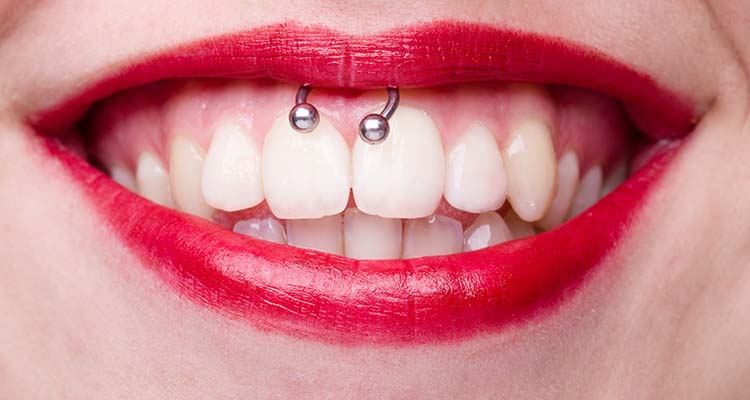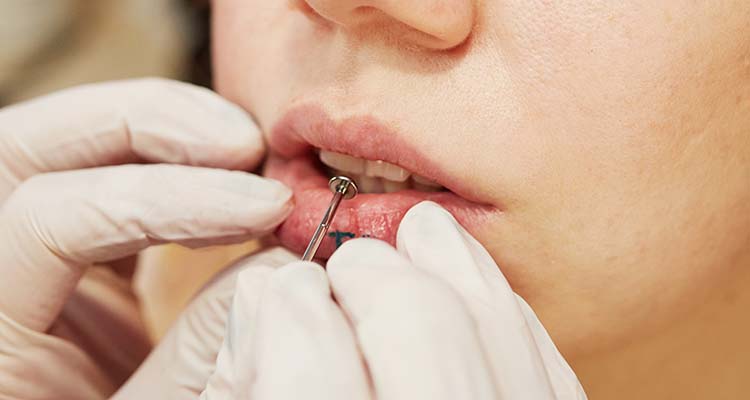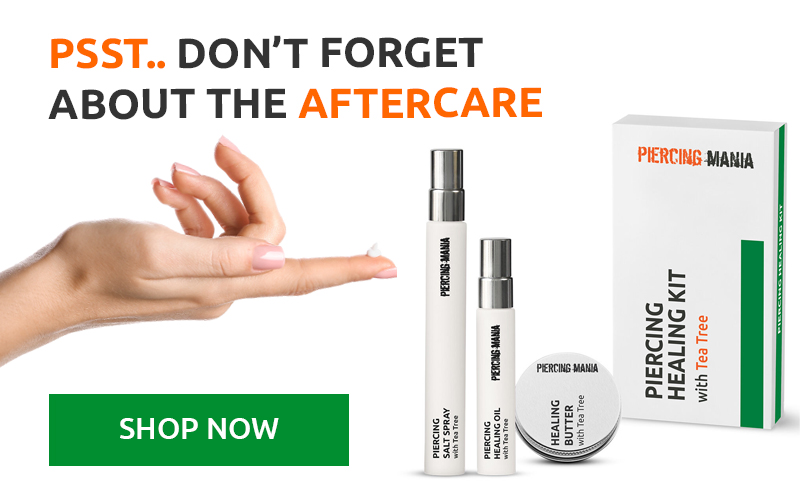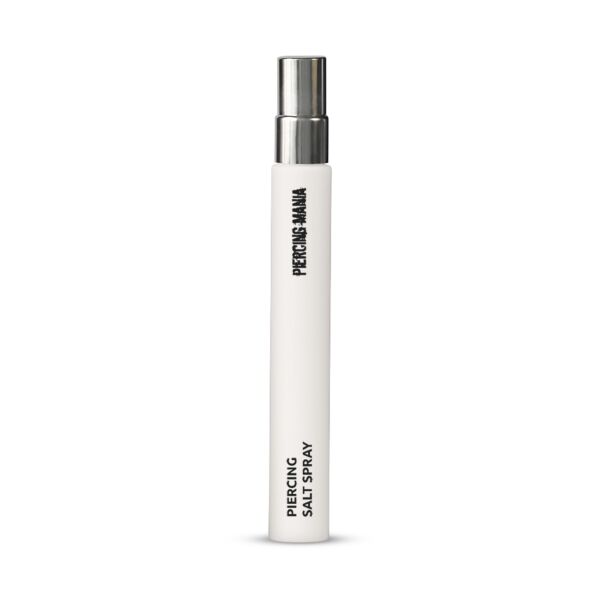Lip Piercing
Lip Piercing Shopping Guide
Lip piercings can give you a special, unique look, but they may also need some extra care due to the sensitive skin inside the mouth.
This shopping guide shows the various piercing types that could be a fit and the different types of threading on lip piercings. Learn more about sizes and what materials to pick to protect your teeth.
Jump to:
Lip Piercing Sizes
It is necessary to pick the right size for your new lip piercing jewellery. To prevent the piercing from moving too much in your lip, we recommend taking the time to find the perfect fit.
For lip piercings, there are no standard sizes. Especially the length or diameter may vary from person to person as the position of the piercing is often different.

The illustration shows how to measure one of the most popular piercing types for lip piercings, the labret. For other piercing types, you will find a size guide on each product page showing how to correctly measure them.
Below are the most common sizes for the most popular lip piercing jewellery.
Labrets
Most Common Sizes
Thickness 1.2 - 1.6 mm
Length 8 - 10 mm
Curved Barbells
Most Common Sizes
Thickness 1.2 - 1.6 mm
Length 8 - 10 mm
Piercing Rings
Most Common Sizes
Thickness 1.2 - 1.6 mm
Length 10 - 12 mm

Various types of Threading
When replacing lip piercing jewellery, the bar will have to go through sensitive skin. The threading of the bar can make a difference on how comfortable and easy replacing the jewellery is.
Below is a more detailed explanation of the types of threading you can find in our selection.
Normal labret piercings have external threading. The threading itself can feel a bit sharp. For fully healed piercings, external threading should not be an issue. However, for new piercings in sensitive body parts like the lips and mouth, it may not be the most comfortable choice.
Internally threaded piercings come with the threading inside the bar, so the bar itself is completely smooth. Although this type of labret jewellery can be slightly more expensive, we recommend considering this option for lip piercings. It can be more comfortable and a bit easier to put in.
Threadless labrets are unique, as they have no threading at all. The tops have a pin that needs to be bent inside the bar. By bending, the top stays securely in place. Specific instructions for this can be found on the product pages.
Push-fit labrets mostly come with a bioflex bar. The tops are often made of 14 kt. Gold or another metal. The pin of such labrets has small ridges that help them stay in place. Please note that push-fit labrets are known to have a less secure fit. Nonetheless, these are commonly used for lip piercings.
Lip Piercing Materials
As lip piercings are mostly in the close direction of your teeth, the choice of material is an important one. Here is a closer look at the most commonly used materials.
316L Surgical Steel
flip for more info
316L Surgical Steel
Although 316L surgical steel is commonly used, it isn't always recommended for lip piercings. It contains trace amounts of nickel and may be subjective to tarnishing. Make sure to read the material guide before ordering.
Titanium
flip for more info
Titanium
When you prefer steel jewellery for your lip piercing, titanium is the best option. Our titanium jewellery is of implant grade. Furthermore, this material is free of any nickel and it won't rust at all. Note that titanium is slightly more gray than 316L surgical steel.
Bioflex
flip for more info
Bioflex
Bioflex is the best option if you're looking to protect your teeth. There are quite a few labrets with a bioflex bar. This soft material is perfect for lip piercings, as it is less harmful to the tooth enamel. In addition, bioflex is also free of nickel.
14 Kt. Gold
flip for more info
14 Kt. Gold
Labrets made a 14 kt. gold top and bioflex bar are commonly used for lip piercings. Note that gold is sensitive to discoloration when it comes to contact with acidic drinks. We don't recommend wearing 14 kt. Gold bars or hoops inside the mouth.
Lip Piercing Aftercare
Tea tree oil should not be ingested, so it is not recommended for piercings inside the mouth. For irritation on the skin outside of the mouth, a product containing tea tree oil can be helpful. Consider using our Healing Oil as a preventative measure against infections, and Salt Spray for cleaning.

Thinking about getting a new Lip Piercing?
Depending on the type of lip piercing you're getting, the labret piercing can be an ideal choice. Your local piercing artist can help you pick the best piercing type to wear in your piercing during the healing period.
Check our special guide about getting pierced to read more information and help you prepare.














